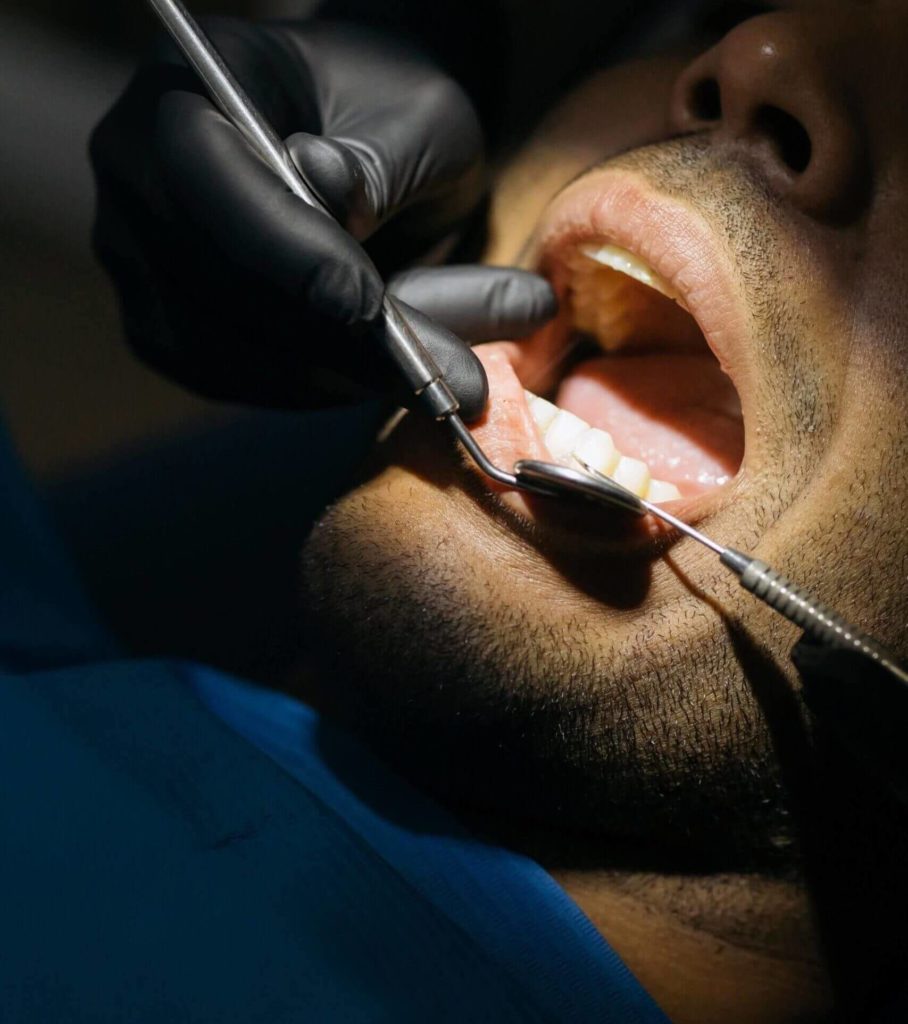
Cavities are not always visible. They can develop under old fillings or between teeth, making them more challenging to locate. Unfortunately, cavities can spread rapidly, affecting adjacent teeth and causing more aggressive infections such as abscessed teeth. If you feel sweet sensitivity, tenderness, or get food caught in your teeth frequently, be sure to let Dr. Varkey know.
Dental Fillings Stop the Spread of Decay
A minimally-invasive dental filling can stop the spread of decay as soon as it’s detected. Your small restoration also preserves your overall tooth, as it reduces the chance of the infection expanding into your dental nerves and causing an abscess. Both white (composite) and silver (amalgam) fillings are available, white being the most attractive and minimally invasive to the tooth.
Is it Possible to Get Cavities Around Existing Dental Work?
Yes, decay can form around dental bridges, crowns, or fillings. Good oral hygiene—including flossing—is an important part of preventing recurring cavities from developing.
Over time, the margins around old dental work can begin to leak, allowing new cavities to develop. Retreating those areas as quickly as possible will minimize the extent of treatment your smile needs in the future.
What is a Cavity? What are the Symptoms of Tooth Decay?
Tooth decay is a bacterial infection inside of tooth enamel that, left untreated, will expand further into the tooth structure. A cavity can manifest in many ways. The most common warning signs include:
You notice discomfort or pain when you eat or bite into something
Sensitivity whenever you eat or drink something sweet
A rough edge that you can feel with your tongue
Food or floss getting caught between certain teeth
Something feeling “off” in a specific part of your mouth
Occasional discomfort or toothaches
Digital X-rays are necessary to detect cavities that may not be visible during an exam. If the decay isn’t treated promptly, it will almost always spread into the adjacent tooth structure. This is why early treatment is important regardless of whether any pain is being experienced. A cavity may never hurt or cause sensitivity, making it easy for an abscess to develop with your knowledge.
What to Expect When You Get a Dental Filling
After numbing your tooth, Dr. Varkey will clean out the decayed areas and prep the enamel immediately next to it. We will match the filling material to your natural tooth enamel, then shape it by hand to fill in the void in your tooth. A bright light cures your filling and bonds it in place. After the procedure, your tooth may feel numb for a few hours.
Preventing Tooth Decay
Keep your smile healthier, and longer. Plan to schedule a checkup twice per year. During your exam, we’ll look for early signs of enamel demineralization, providing you with a chance to reverse it through good home care and fluoride supplementation. And if you have active decay, we can provide you with an opportunity to get ahead of it before major issues develop.
Call DeSoto Family Dentistry if it’s been six months since your last dentist appointment or if you suspect you have a cavity.